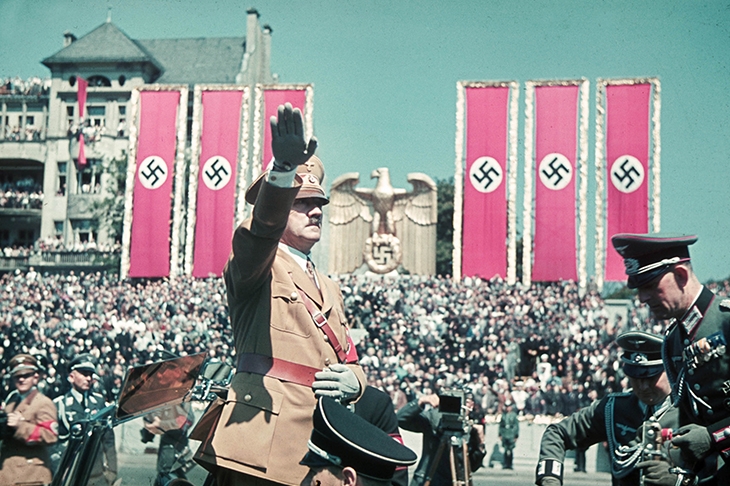Of the many bleak moments that have lodged in my mind since reading this extraordinary book the most unshakeable is the image of the once dignified Otto Neumann, walking to his death in torrential rain, with black shoe polish running down his face and into his eyes. Thus was his fate sealed as the silver hair revealed beneath ensured he was deemed too old to be selected for work. He was despatched instead to the gas chambers of Auschwitz.
But if this downpour, in a hideously crazy world, can be considered bad luck — after all, Otto and his wife Ella had by then managed against the odds to survive in the hell that was Terezin for two years — Hans, their young son then in hiding, was to have moments of astonishing good luck, which ensured his survival. After the war, perhaps his greatest luck was to have a daughter who has devoted years to unravelling and reconstructing the wartime experiences that he could never bring himself to talk about with anyone, least of all her. Yet he clearly wanted her to write this story, and on his death in 2001 left her a box of papers which, she believes, gave her permission to continue the search.
The story of how this Czech Jew, wanted by the Gestapo, hid in plain sight in Berlin is breathtaking
Actually the search began much earlier, when Ariana, brought up Catholic in Caracas, played a game with some school friends pretending to be part of a spy detective club which they called the Mysterious Boot Club. One of the first documents she discovered was an identity card from 1943 with the name Jan Sebesta and a Hitler stamp but a picture of her father as a young man. Yet when she ran screaming to her mother that her father must therefore be an imposter, nobody would tell her any more.







Comments
Join the debate for just £1 a month
Be part of the conversation with other Spectator readers by getting your first three months for £3.
UNLOCK ACCESS Just £1 a monthAlready a subscriber? Log in